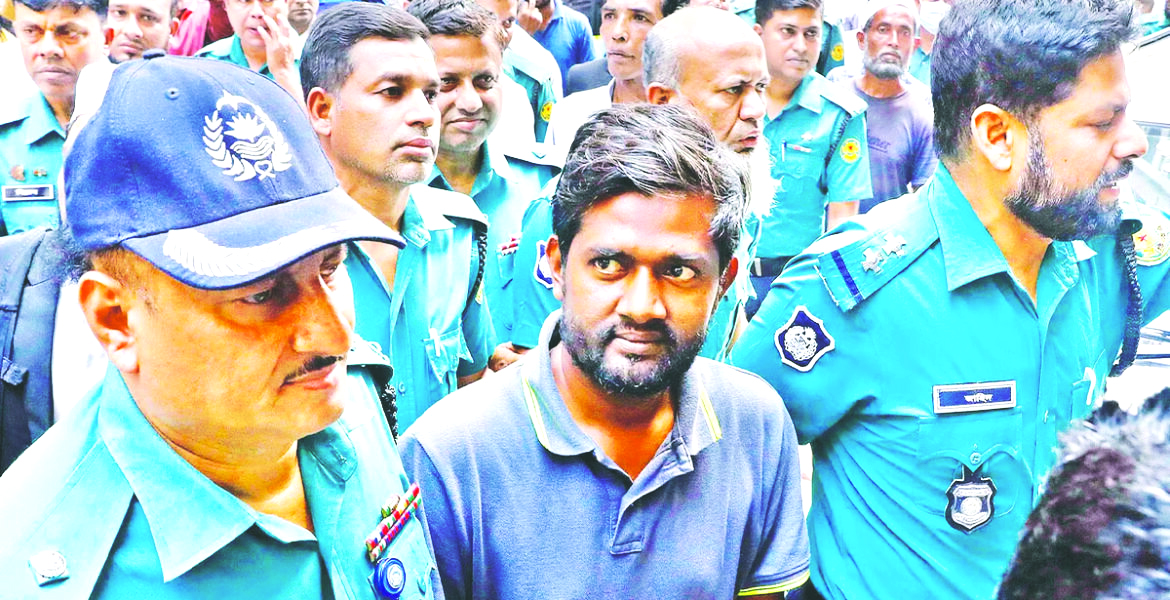Bangladesh’s top newspaper Prothom Alo has come under attacks from the government and the ruling party following reports that challenge Sheikh Hasina government’s development narrative.
On March 29, Shamsuzzaman Shams, a reporter of Prothom Alo was picked up in the dark of the night from his house by plainclothes and then he was shown arrested in a case filed in the same night under the draconian Digital Security Act.
The journalist was arrested over a report about rising food prices and people’s inability to have proper meals. “What is the use of this freedom if we can’t afford rice?” one labourer was quoted as saying in the report that was published on the Independence Day of the country.
The cost of food has soared in Bangladesh since the middle of 2022 following Russia’s invasion of Ukraine. Its currency, the taka, has fallen sharply against the US dollar.
The reporter was charged with “smearing the image of the government with false news” and for raising questions about the achievements of Bangladesh, according to a copy of the case file obtained by Agence France-Presse.
On the same day another case was filed against the editor of Prothom Alo by a ruling Awami party leader over the report. Later the two journalists were granted bail in the court.
On April 10, Prime Minister Sheikh Hasina blasted against the newspaper as she was quoted as saying: “Prothom Alo is the enemy of Awami League, the enemy of democracy, and the enemy of the country’s people. I am saying with regret that they [Prothom Alo] never want to permit any stability in this country.”
Immediately after Hasina’s verbal attacks on the newspaper, a group of ruling party activists stormed the Prothom Alo office and harassed the security personnel at the gate. They also threatened to ‘set fire in the office’ and vandalized its logo in the reception by writing ‘boycott’ over it.
Under Sheikh Hasina, in power since 2009, the south Asian nation of 170 million people is becoming increasingly authoritarian.
Reporters Without Borders ranked Bangladesh 162 of 180 countries in its 2022 World Press Freedom Index. It is ranked below Russia (155) and Afghanistan (156).
In recent months, Bangladesh’s dwindling number of independent media and journalists have come under increasing attack by the government and Hasina’s ruling party.
The authorities shut down the lone opposition mouthpiece in February, saying it violated the country’s press laws.
A total of 56 journalists have been tortured, harassed, sued, intimidated and obstructed from doing their jobs in the first three months of 2023 according to the data published by Ain O Salish Kendra (ASK), a Bangladeshi legal aid and human rights organisation.
Rights groups slammed the government moves against the country’s leading newspaper. On April 12, Amnesty International said in a statement that “Prothom Alo, Bangladesh’s largest daily newspaper is the latest media platform to come under increasing attack including intimidation, harassment and arrest of journalists signaling a deepening crisis for press freedom in the country.”
“This is the latest in a series of attacks by the government of Bangladesh threatening press freedom in the country. Penalizing a media outlet, publisher or journalist solely for being critical of the government or the policies it promotes is a restriction of the right to freedom of expression that can never be justified. The attacks on Prothom Alo which has the largest daily circulation come close on the heels of the closure of Daily Dinkal, the only newspaper belonging to the main opposition party last month,” said Yamini Mishra, regional director for South Asia at Amnesty International.
“The use of the draconian Digital Security Act on journalists and attacks on some of the largest news publications in the country together indicate a worrying trend towards repression and a downward spiral of the right to freedom of expression in Bangladesh.”
A senior news editor from Bangladesh speaking to Amnesty International described the government’s crackdown on Prothom Alo as a deliberate campaign ‘to create an atmosphere of terror ahead of the general elections.’
Speaking on the condition of anonymity, he said, “The government is sending a very clear message (that) this is what happens when you cross the limits of speech we have set. Even if journalists eventually receive bail, until the day the case is dropped the pressure will remain… Many of those who criticize the ongoing crackdown on freedom of press in Bangladesh think the DSA is being misused by targeting journalists. However, this is a conceptual mistake. The DSA is not being misused – it is being used exactly in the way the government intended the law to function.”
On 31 March 2023, the UN High Commissioner for Human Rights Volker Türk called on Bangladesh to impose an immediate moratorium on the use of DSA until it is reformed to ensure compliance with international human rights law. The Commissioner expressed concern that the DSA ‘is being used across Bangladesh to arrest, harass and intimidate journalists and human rights defenders, and to muzzle critical voices online.’

